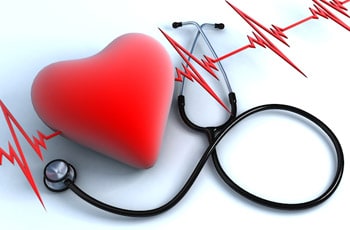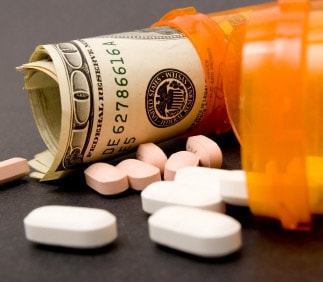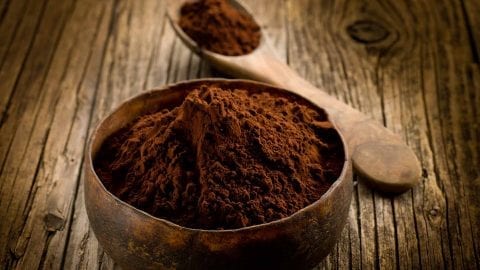Testosterone therapy has been in use for more than 70 years for the treatment of hypogonadism, also called testosterone deficiency.[1] In the past 30 years there has been a growing body of scientific research demonstrating that testosterone deficiency is associated with increased body weight/adiposity/waist circumference, insulin resistance, type 2 diabetes, hypertension, inflammation, atherosclerosis and cardiovascular disease, erectile dysfunction (ED) and increased risk of mortality [2, 3]. In line with the detrimental health outcomes seen with testosterone deficiency, testosterone therapy has been shown to confer beneficial effects on multiple risk factors and risk biomarkers related to these clinical conditions.[4]
Despite these well-documented health benefits, testosterone therapy is still controversial, in large part due to a few flawed studies about potential elevated heart attack (myocardial infarction) risk with testosterone therapy. On July 2, 2014, a new study was published, demonstrating that testosterone therapy is not associated with an increased risk of heart attack, and may actually confer protection against heart attack…[5]
KEY POINTS
* Testosterone deficiency is associated with increased body weight/adiposity/waist circumference, insulin resistance, type 2 diabetes, hypertension, inflammation, atherosclerosis and cardiovascular disease, erectile dysfunction (ED) and increased risk of mortality [2].
* Testosterone therapy beneficially impacts multiple risk factors and risk biomarkers related to highly prevalent clinical conditions that are associated with testosterone deficiency.[4]
* The most recent study reported reported below demonstrates that testosterone therapy does not increase risk of heart attack, and that it actually may protect against heart attack in high-risk population.[5] This is in line with a large body of research showing beneficial effects of testosterone therapy in hypogonadal men.[4]
* Three large meta-analyses specifically focusing on identifying potential adverse effects of testosterone treatment report no significant increases in cardiovascular risk.[6-8]
* A review of all testosterone trials up to 2012 found that testosterone therapy in patients with preexisting cardiovascular conditions, the effect on disease markers has typically been either neutral or beneficial, and does not increase the incidence of cardiovascular events.[9]
What is known

To the contrary of the large body of evidence supporting beneficial health effects of testosterone therapy in hypogonadal men, two recent studies reported that testosterone therapy is associated with an increased risk of heart attack, stroke, and death.[10, 11] The first study, by Vigen et al published in JAMA on November 6, 2013, used a complicated questionable new statistical approach which reversed the actual results demonstrating a benefit for men treated with testosterone.[11] This study has undergone two corrections, with such large data errors that 29 medical societies have called for retraction of the study as it is “no longer credible.”[12, 13]
The second study, by Finkle et al published in PLoS One on January 29, 2014, was a retrospective study of a health insurance database that reported rates of non-fatal heart attacks up to 90 days following a testosterone prescription, and compared this to heart attack rates in the prior 12 months. The authors reported the rate ratio of heart attack post-prescription to pre-prescription was 1.36, and the rate in men older than 65 years was 2.19.[10] However, the investigators presented the pre-prescription heart attack rate as if it reflected the natural history of heart attacks in the study population prior to treatment. This was not the case, because there was no run-in period to determine the natural history of untreated T deficiency. The study group was selected on the basis of having already received a testosterone prescription. This means the pre-prescription MI rate reflects how often healthcare providers were willing to prescribe testosterone to men with a recent (within 12 mo) heart attack. Any reluctance to prescribe T to men with recent MI would result in a reduced pre-prescription MI rate. Thus, the study substituted physician prescribing patterns for naturally occurring heart attack rates. This is a serious methodological error. Unacknowledged by the authors, observed heart attack rates after testosterone prescription were actually substantially lower than predicted by the National Institutes of Health Heart Attack Risk Calculator.[14]
These two studies received widespread media attention, and created a new concern regarding cardiovascular risks with T prescriptions, with little attention paid to the critical methodological flaws in these studies, nor the large number of prior studies showing beneficial cardiovascular effects of testosterone therapy.
What this study adds
The latest study on testosterone therapy and heart attack by Baillargeon et al, published July 2, 2014, examined the risk of heart attack in a population-based cohort of older men receiving intramuscular testosterone.[5]
In a sample of 25,420 US Medicare recipients aged 65 y and older, a group of 6355 men treated with at least 1 injection of testosterone between January 1, 1997, and December 31, 2005 were matched to testosterone non-users. After adjusting for demographic and clinical characteristics, receipt of testosterone therapy was not associated with an increased risk of heart attack.
Interestingly, a significant trend towards reduced heart attack rates with testosterone administration was noted among men with increasing degree of risk. For men in the highest prognostic heart attack risk group, treatment with testosterone therapy was associated with significantly reduced risk. A dose-response analysis demonstrated no increased risk in heart attack according to estimated cumulative dose of testosterone. Even though this study was retrospective, it did adhere to well-established methodology and statistical analysis, in contrast the controversial study by Vigen.
The new study by Baillargeon concluded that older men who were treated with intramuscular testosterone do not appear to have an increased risk of heart attack. For men with high heart attack risk, testosterone use may actually be protective against heart attack. This conclusion is in line with previous studies showing that testosterone treatment in men over 40 years of age is associated with decreased mortality compared with no testosterone treatment.[15, 16]
These results are also consistent with three large meta-analyses that specifically focused on identifying potential adverse effects of testosterone treatment, and reported no significant increases in cardiovascular risks.[6-8] A more recent review of testosterone trials found that testosterone therapy in patients with preexisting cardiovascular conditions, the effect on disease markers has typically been either neutral or beneficial, and does not increase the incidence of cardiovascular events.[9]
An insightful quote from the paper “Testosterone and cardiovascular risk: world’s experts take unprecedented action to correct misinformation” elegantly illustrates the scientific reality: [13] “Science is complex, and there will always be articles published that yield unexpected or awkward results. Every once in a while, though, it is important for the research and clinical medical community to stand up and say, ‘‘No! This is wrong!’’ We do this for science, for the integrity of medical literature, and most importantly, we do it for the health and welfare of our patients.”
References:
1. Nieschlag, E. and S. Nieschlag, Testosterone deficiency: a historical perspective. Asian J Androl, 2014. 16(2): p. 161-8.
2. Traish, A.M., Adverse health effects of testosterone deficiency (TD) in men. Steroids, 2014.
3. Mesbah Oskui, P., et al., Testosterone and the cardiovascular system: a comprehensive review of the clinical literature. J Am Heart Assoc, 2013. 2(6): p. e000272.
4. Traish, A.M., Outcomes of testosterone therapy in men with testosterone deficiency (TD): Part II. Steroids, 2014.
5. Baillargeon, J., et al., Risk of Myocardial Infarction in Older Men Receiving Testosterone Therapy. Ann Pharmacother 1060028014539918, first published on July 2, 2014 as doi:10.1177/1060028014539918, 2014.
6. Calof, O.M., et al., Adverse events associated with testosterone replacement in middle-aged and older men: a meta-analysis of randomized, placebo-controlled trials. J Gerontol A Biol Sci Med Sci, 2005. 60(11): p. 1451-7.
7. Fernandez-Balsells, M.M., et al., Clinical review 1: Adverse effects of testosterone therapy in adult men: a systematic review and meta-analysis. J Clin Endocrinol Metab, 2010. 95(6): p. 2560-75.
8. Haddad, R.M., et al., Testosterone and cardiovascular risk in men: a systematic review and meta-analysis of randomized placebo-controlled trials. Mayo Clin Proc, 2007. 82(1): p. 29-39.
9. Carson, C.C., 3rd and G. Rosano, Exogenous testosterone, cardiovascular events, and cardiovascular risk factors in elderly men: a review of trial data. J Sex Med, 2012. 9(1): p. 54-67.
10. Finkle, W.D., et al., Increased risk of non-fatal myocardial infarction following testosterone therapy prescription in men. PLoS One, 2014. 9(1): p. e85805.
11. Vigen, R., et al., Association of testosterone therapy with mortality, myocardial infarction, and stroke in men with low testosterone levels. JAMA, 2013. 310(17): p. 1829-36.
12. Morgentaler, A. Letter to JAMA Asking for Retraction of Misleading Article on Testosterone Therapy. Availible at http://www.androgenstudygroup.org/initiatives/letter-to-jama-asking-for-retraction-of-misleading-article-on-testosterone-therapy, accessed July 2, 2014. 2014.
13. Morgentaler, A. and B. Lunenfeld, Testosterone and cardiovascular risk: world’s experts take unprecedented action to correct misinformation. Aging Male, 2014. 17(2): p. 63-5.
14. NIH, Risk Assessment Tool for Estimating Your 10-year Risk of Having a Heart Attack. http://cvdrisk.nhlbi.nih.gov/calculator.asp, accessed April 21, 2014.
15. Shores, M.M., et al., Testosterone treatment and mortality in men with low testosterone levels. J Clin Endocrinol Metab, 2012. 97(6): p. 2050-8.
16. Muraleedharan, V., et al., Testosterone deficiency is associated with increased risk of mortality and testosterone replacement improves survival in men with type 2 diabetes. Eur J Endocrinol, 2013. 169(6): p. 725-33.









As always, very impressive work, Monica, This is a critical consideration for those of us in our 50’s, so thanks for bringing the flawed work to our attention.
Thank you Frank. I’m glad you find the information relevant. 🙂
Thanks, Monica! There’s so much in the way of “garbage-info” out there, that it’s tough to wade through it all and sift out the nonsense and errors. I’m going to have to get myself tested, soon, because I’m beginning to get a number of symptoms of Low-T. I realize that I’m aging and all that, but why suffer needlessly? My concerns were with cardiac problems and cancer, but I think you’ve given me a great deal of comfort about taking the next step. I do have a little confusion, though. On local radio, a company advertises about the advantages of hormone pellet therapy being better than injecting synthetic T. Is there really a difference between them? The pellet therapy supposedly lasts at least 6 months, according to their radio spots. Thanks.
In my opinion, every man (even young men) should do a comprehensive hormone panel (that includes DHT, total and free testosterone and estrogen, and SHBG) in order to establish their individual baseline.
This is important because then relative changes over time can be monitored, and due to inter-individual differences in androgen receptor sensitivity, relative changes over time may be more informative than absolute changes. This is an important factor to take into consideration when one interprets research on testosterone therapy outcomes. It is equally important in clinical practice; for ex, raising testosterone levels by for ex 300 ng/dl may provide benefits for one man, but not for another man who may have less sensitive androgen receptors.
To answer your question on pellet vs. injectable; it doesn’t matter what testosterone formulation you use, the choice is more of an issue of personal preference and convenience. What matters is that the therapy raises your testosterone levels enough to provide clinical improvements.
great article! i’m a 66 year old man, who used to work out extensively. my trainer and friend was larry scott. knew him for over 25 years. i’ve never used drugs,nor will i ever.over the years i would ask him to investigate natural t- boosters. i belieave he was doing that before he passed away. my t-level is below 200. the v.a. offered viagra. have you any insight for natural t- boosters? by the way, you have a beautifully fantastic body. not trying to hit on you, just saying. thank you. david.
David, I want to bring two critical facts to your attention:
1) There are NO “natural T-boosters” that significantly increase T levels. The only natural way to “boost” T levels is to get rid of excess body fat.
2) It is important to distinguish “drugs” from endogenous testosterone. When you say “…never used drugs” I am getting the impression you are referring to underground anabolic steroids. Anabolic steroids are synthetic derivatives of testosterone, and thus confer different risk-benefit ratio (where risk commonly is far greater than a potential benefit, which is typical for anything that comes from the underground market).
In my articles on testosterone, I am NOT referring to underground anabolic steroids! I am talking about pharmaceutical grade testosterone, dispensed by a doctor, which is identical to endogenous testosterone (the different T formulations just are esterified to different esters in order to allow for practical administration).
Having a T level of 200 and not taking testosterone therapy, you are making serious harm to yourself!